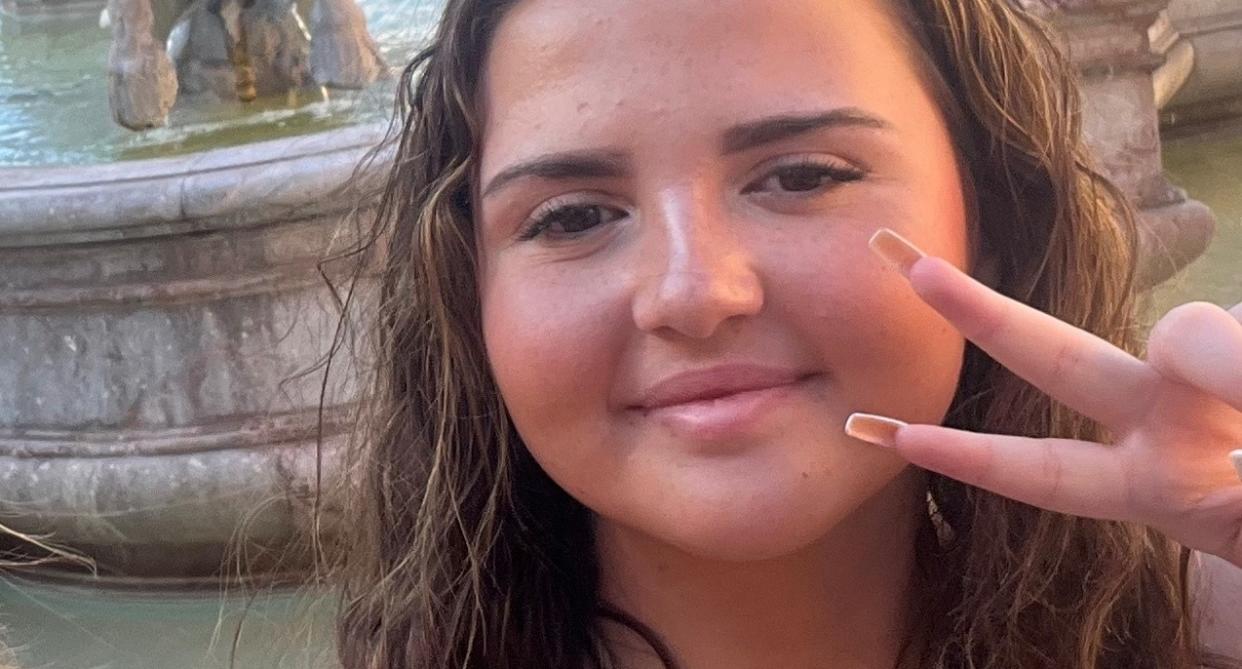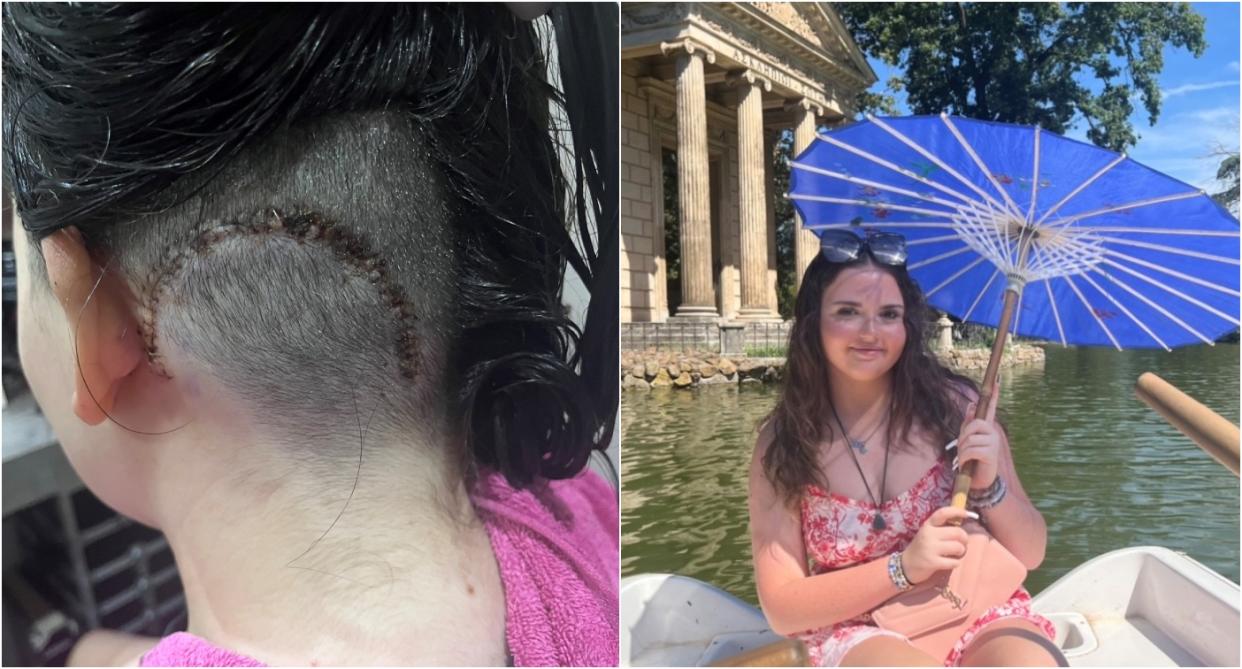Teenager diagnosed with growing pains actually had rare brain tumour

A teenager who was diagnosed with ‘growing pains’ when she was just six years old was later told that she actually had a brain tumour.
Honey Ibbitson, now 15, was six when she started to notice feelings of discomfort in her legs.
Her mother, Julie Ibbitson, 36, took her for tests before the condition was ruled as growing pains. However, Julie says her ‘mother’s instinct’ led her to push for further investigations.
"From the age of six, [Honey] had four years of tests," Julie says. "But the doctors couldn’t see anything wrong other than growing pains, which they said were completely normal for her age.
"It got to the point where Honey was limping because walking was too painful at times. My mother’s instinct was telling me there was more to it.
"I pushed for a referral to the hospital, but never expected to be told that Honey had something growing in her brain."
It wasn’t until Honey was 10 that she was diagnosed with a cerebellopontine angle epidermoid cyst, a type of rare brain tumour.
The tumour remained stable for a further five years before it began to grow, which led the Birmingham teenager to have surgery on it last November.

"To look at her, you wouldn’t know everything Honey has been through," Julie says. "We feel fortunate that she can return to school and lead the life you’d expect a 15-year-old should.
"She is keen to get back to school for her mock GCSEs, especially drama which is her favourite subject. Doctors told us that Honey probably had the tumour when she was in the womb which is terrifying to think about.
"Had her tumour not been found when it was, Honey could have been left with irreversible conditions and our story may have been very different.”
Now, Julie is partaking in the 10,000 Steps a Day in February challenge for the charity Brain Tumour Research.
"The work of Brain Tumour Research is vital if we are to understand the complexity of brain tumours and eventually find a cure," Julie says.
"It’s heartbreaking that brain tumours kill more children and adults under the age of 40 than any other cancer. I’m determined to be part of the solution."
Mel Tiley, community development manager at Brain Tumour Research, adds: "Honey’s story is a stark reminder of the indiscriminate nature of brain tumours."
You can donate to Julie's Just Giving page here.
Additional reporting by SWNS.
Health: Read more
Living with Li-Fraumeni syndrome: 'I've had cancer twice and lost three family members to the disease' (Yahoo Life UK, 10-min read)
Symptoms and treatments of a brain tumour, as Benjamin Zephaniah dies 8 weeks after diagnosis (Yahoo Life UK, 8-min read)
Symptoms of UK’s most common cancers as MAFS star reveals diagnosis (Yahoo Life UK, 6-min read)


